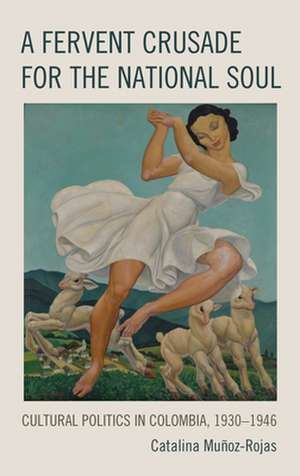Fervent Crusade for the National Soul: Social Movements in the Americas
Autor Catalina Munozen Limba Engleză Hardback – 14 ian 2022
Preț: 587.62 lei
Preț vechi: 763.15 lei
-23% Nou
Puncte Express: 881
Preț estimativ în valută:
112.44€ • 117.64$ • 93.41£
112.44€ • 117.64$ • 93.41£
Carte tipărită la comandă
Livrare economică 02-16 aprilie
Preluare comenzi: 021 569.72.76
Specificații
ISBN-13: 9781793618115
ISBN-10: 1793618119
Pagini: 238
Dimensiuni: 152 x 229 x 22 mm
Greutate: 0.47 kg
Editura: Rowman & Littlefield
Seria Social Movements in the Americas
ISBN-10: 1793618119
Pagini: 238
Dimensiuni: 152 x 229 x 22 mm
Greutate: 0.47 kg
Editura: Rowman & Littlefield
Seria Social Movements in the Americas
Notă biografică
Descriere
A Fervent Crusade for the National Soul examines the implementation of state cultural intervention in Colombia between 1930 and 1946. It explores the multi-vocal debates about the role of culture in shaping the relationship between the ruler and the ruled in a country undergoing deep socioeconomic transformations.




